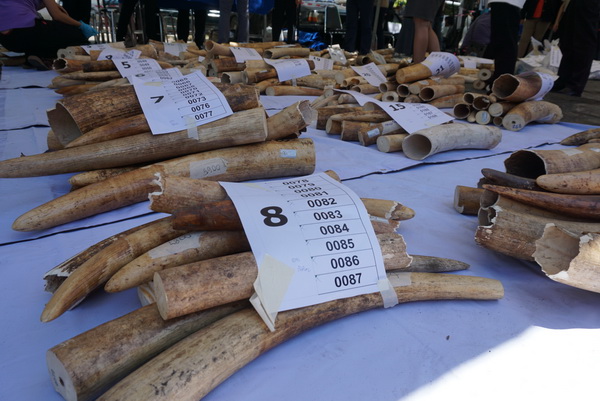Thailand, one of the largest ivory markets in the world, is set to crush more than two tons of confiscated illegal ivory on August 26.
A total of 1,206 kilograms of ivory tusks and trinkets, seized by the Customs Department, were weighed, measured and cross-checked with existing records as part of a transparent auditing process.
The same method was used to audit 950 kilograms of ivory held by the Department of National Parks, Wildlife and Plant Conservation and Freeland.
“The destruction of this ivory will send a strong, clear message that Thailand has zero tolerance for consumers of illegal ivory and the traffickers who have long used Thailand as a gateway and marketplace,” said WWF’s Janpai Ongsiriwittaya, who participated in the audit.
“And it echoes the will of 1.3 million Thais who spoke up for elephants and against illegal ivory trade as part of the WWF’s Chor Chang Can Save Elephants campaign earlier this year. Thailand’s support of the independent audit process before the ivory crush is a vital step in demonstrating its overall commitment to tackling the issue of illegal ivory in the country and stopping wildlife crime,” he said.
Around 30,000 African elephants are poached every year, their ivory destined for countries like Thailand. For years, Thailand’s open, unregulated market allowed wildlife criminals to launder massive amounts of poached ivory.
In 2013, Thailand came under intense global pressure to shut down its national ivory market. Faced with the threat of international trade sanctions under the Convention on International Trade in Endangered Species (CITES), the government crafted a National Ivory Action Plan and passed a historic Elephant Ivory Act this year. It requires owners and traders to register their ivory and is aimed at regulating the legal market in ivory from domesticated, privately owned Asian elephants.
An estimated 220 tons of ivory was registered by over 44,000 private citizens earlier this year during a mandatory ivory registration process.
The government has also prohibited the trade and sale of ivory from African elephants by enacting an amendment to the country’s existing Wild Animal Reservation and Protection Act, making African elephants a protected species in Thailand.
“Considerable progress has been made this year but there will be challenges ahead with implementing regulations, clamping down on illegal traders and reducing demand,” added Ongsiriwittaya.
“The good news is that Thailand is taking important steps to wipe out the illicit trade and protect elephants, an animal that is closely woven into the culture, values and national identity,” Ongsiriwittaya said.
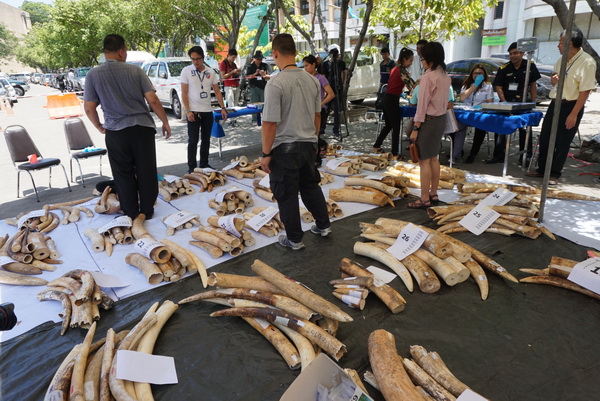
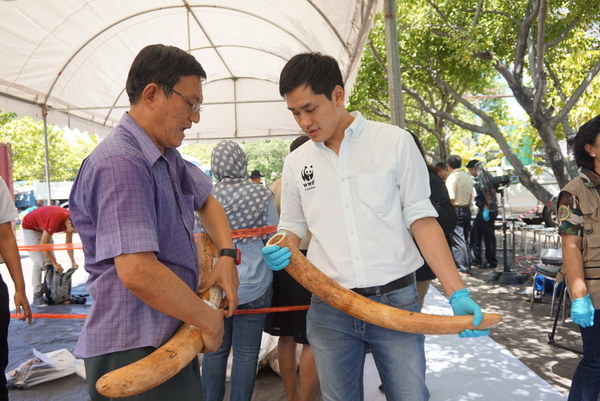
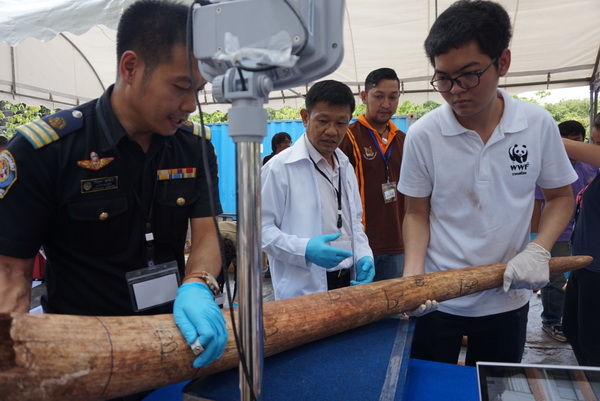
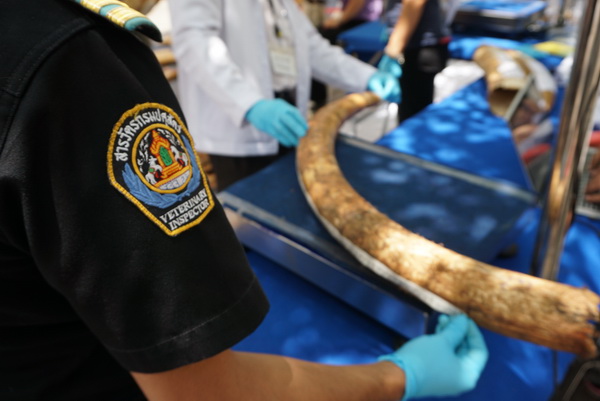
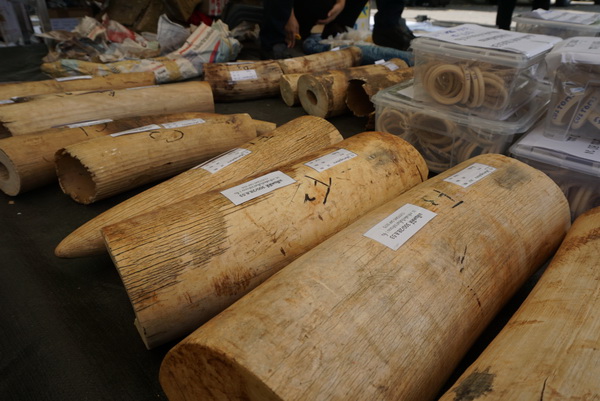
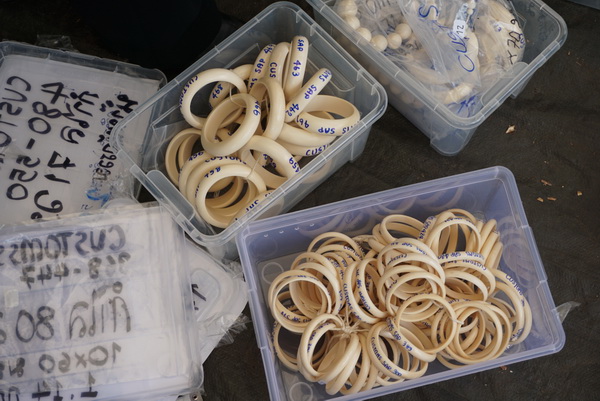
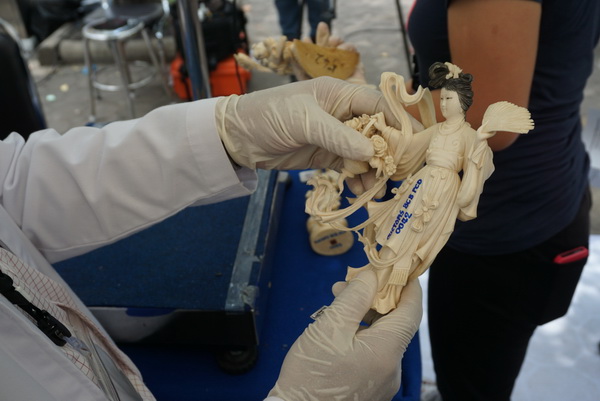

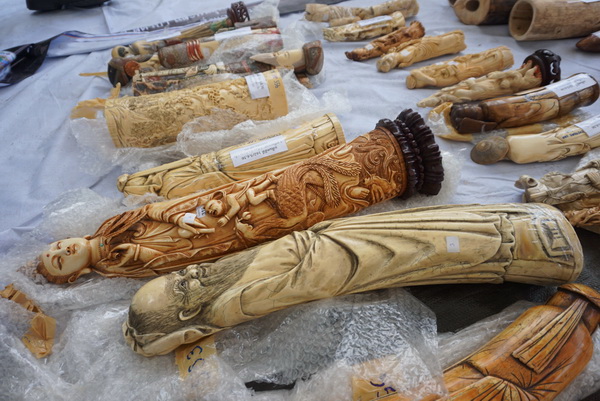
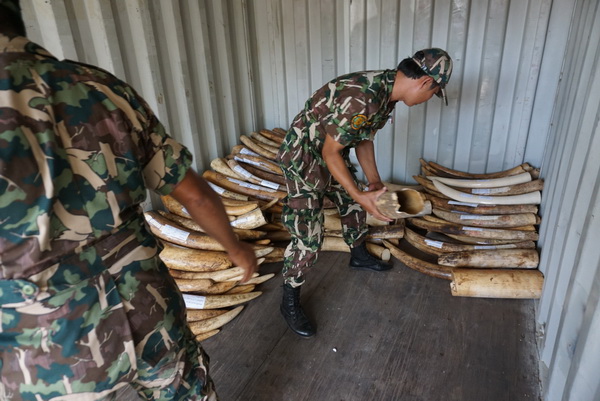
Photos: WWF
